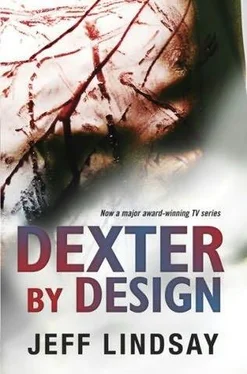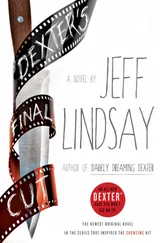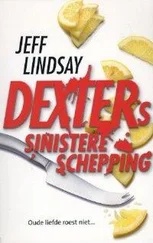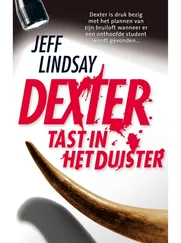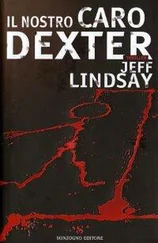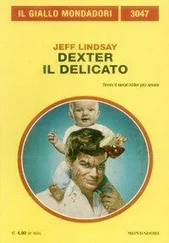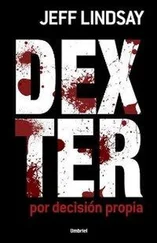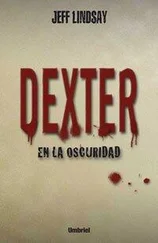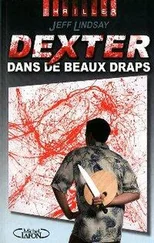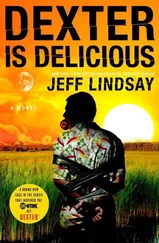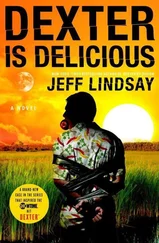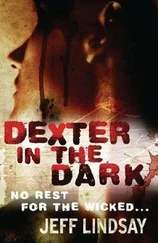“Ten bucks” Chutsky said. “That's what most of the people here make in a month. And boom-bah —he gets it for five minutes work.
He's probably got a PhD in astrophysics.” There was a short and welcome pause, and then Chutsky said, in a voice that seemed much farther away, “Hey, you all right buddy?”
“Never better” I said, and my voice was kind of far away, too.
“But I think I'll just take a nap for a minute.”
WHEN I WOKE UP THE ROOM WAS QUIET AND DARK AND my mouth was very dry. I fumbled around on the night stand for a moment until I found a lamp, and I switched it on. In its light I saw that Chutsky had closed the curtains and then gone out somewhere. I also saw a bottle of drinking water beside the lamp, and I grabbed it and ripped the top off, gratefully sucking down about half the bottle in one fell swoop.
I stood up. I was a little bit stiff from sleeping on my face, but other than that I felt surprisingly good, as well as hungry, which was not surprising. I went to the window and opened the curtains.
It was still bright daylight, but the sun had moved off to one side and calmed down a little, and I stood looking out at the harbor and the seawall and the large sidewalk that ran along beside it filled with people. None of them seemed in any hurry; they were strolling rather than going anywhere, and groups of them collected here and there for talking, singing, and, from what I could gather from some of the visible activity, advice to the lovelorn.
Farther out in the harbor a large inner tube bobbed in the swell, a man dangling through its center and holding what looked to be a Cuban yo-yo, which is a spool of fishing line with no reel or pole.
Farther still, just on the inside of the horizon, three large ships were steaming past, whether freighters or passenger liners I couldn't tell.
The birds wheeled above the waves, the sun sparkled off the water; all in all it was a beautiful sight, and it made me realize that there was absolutely nothing to eat at the window, so I found my room key on the bedside table and headed down to the lobby.
I found a very large and formal dining room on the far side of the elevators from the front desk, and tucked into a corner beside it was a dark wood-paneled bar. They were both very nice, but not really what I was looking for. The bartender told me, in perfect English, that there was a snack bar in the basement, down the stairs at the far side of the lobby, and I thanked him, also in perfect English, and headed for the stairs.
The snack bar was decorated in tribute to the movies, and I had a bad moment until I saw the menu and realized they served more than popcorn. I ordered a Cuban sandwich, naturally, and an Iron Beer, and sat at a table contemplating lights, camera and action with just a trace of bitterness. Weiss was somewhere nearby, or about to be, and he had promised to make Dexter a big star. I did not want to be a star. I much preferred toiling in shadowy obscurity, quietly compiling a record of flawless excellence in my chosen field. This would soon be utterly impossible unless I managed to stop Weiss, and since I was not really sure how I planned to do that it was a very distressing prospect. Still, the sandwich was good.
When I had finished eating I went back up the stairs and, on a whim, down the grand marble staircase and outside, to the front of the hotel, where a line of taxis stood guard. I walked aimlessly by them and up the long sidewalk, past a row of ancient Chevys and Buicks, and even a Hudson —I had to read the name off the front end. Several very happy-looking people leaned against the cars, and all of them were eager to take me for a ride, but I smiled my way past them and headed for the distant front gate. Beyond these was an untidy heap of what seemed to be golf carts with brightly colored plastic shells attached to them. Their drivers were younger and not quite so high-end as those attending the Hudson, but they were equally eager to prevent me from having to use my legs. But I managed to get through them as well.
At the gate I paused and looked around. Ahead of me was a crooked street that led past a bar or night club. To my right a road led downhill to the boulevard that ran along the seawall, and to my left, also down a hill, I could see what looked like a movie theater on the corner and a row of shops. As I was contemplating all this and trying to decide which way to go, a taxi stopped beside me, the window rolled down, and Chutsky called to me urgently from inside. “Get in” he said. “Come on, buddy. In the cab. Hurry up.” I had no idea why it was so important, but I climbed in and the cab took us on up to the hotel, turning right before the front door and pulling into a parking lot that butted up against one wing of the building.
“You can't be wandering around out front” Chutsky said. “If this guy sees you, the game's over.”
“Oh” I said, feeling slightly stupid. He was right, of course; but Dexter was so unused to daytime stalking that it had not occurred to me.
“Come on” he said, and he climbed out of the cab, holding a new leather briefcase. He paid the driver and I followed him in through a side door that led past a few shops and right to the elevators. We went straight up to our room with nothing else to say, until we got inside. Chutsky threw the briefcase on the bed, flung himself into a chair, and said, “Okay, we got some time to kill, and it's best to do it right here in the room.” He gave me a look that one might give to a very slow child and added, “So this guy doesn't know we're here.” He looked at me for a moment to see if I understood him and then, apparently figuring out that I did, he pulled out a battered little booklet and a pencil, opened the book, and began to do sudoku.
“What's in your briefcase?” I said, mostly because I was a little irritated.
Chutsky smiled, pulled the case toward him with his steel hook, and flipped it open. It was full of cheap souvenir percussion instruments, most of them stamped, “CUBA'.
“Why?” I asked him.
He just kept smiling. “You never know what might turn up” he said, and turned back to his no-doubt fascinating sudoku puzzle.
Left to my own devices, I pulled the other chair in front of the television, switched on, and watched Cuban sitcoms.
We sat there peacefully enough until very close to dusk. Then Chutsky glanced at the clock and said, “Okay, buddy, let's get going.”
“Going where?” I said.
He winked at me. “Meet a friend” he said, and he would say no more. He picked up his new briefcase and headed out the door. So even though it was a little bit disturbing to be winked at, I had no real choice, and I followed meekly along out of the room, out the hotel's side door again, and into a waiting taxi.
The streets of Havana were even busier in the fading light.
I rolled down my window to see, hear, and smell the city, and was rewarded by an ever-changing but never-stopping surge of music, seemingly coming from every door and window we passed, as well as from the many groups of musicians clustered on the street.
Their song rose and fell and mutated as we drove through the city, but somehow it always seemed to come back to the chorus of “Guantanamera'.
The cab followed a tortured path over rough cobbled streets, always through crowds of people singing, selling things and, strangely, playing baseball. I lost all sense of direction very quickly, and by the time the cab stopped at a barrier of large iron globes in the middle of the road I had no idea what direction we had come from. So I followed Chutsky up a side street, through a plaza, and into an intersection in front of what seemed to be a hotel. It was bright orange-pink in the light of the setting sun, and Chutsky led me in, past a piano bar and a number of tables spread with pictures of Ernest Hemingway that looked like they'd been painted by elementary school children.
Читать дальше
